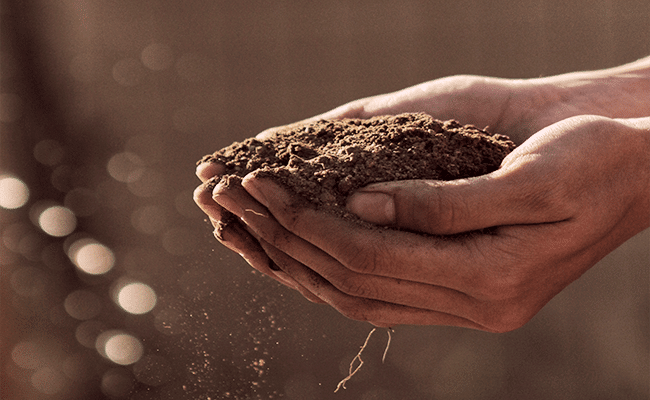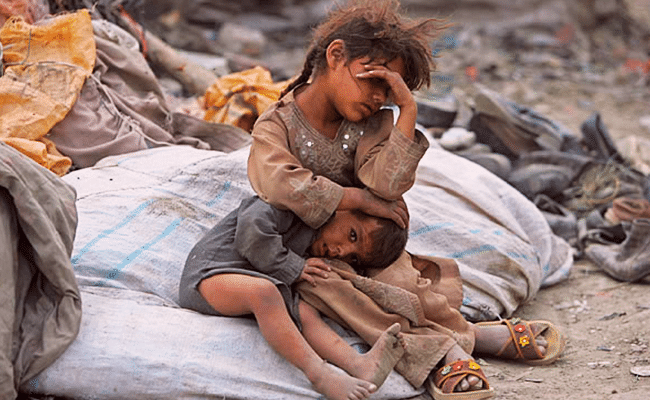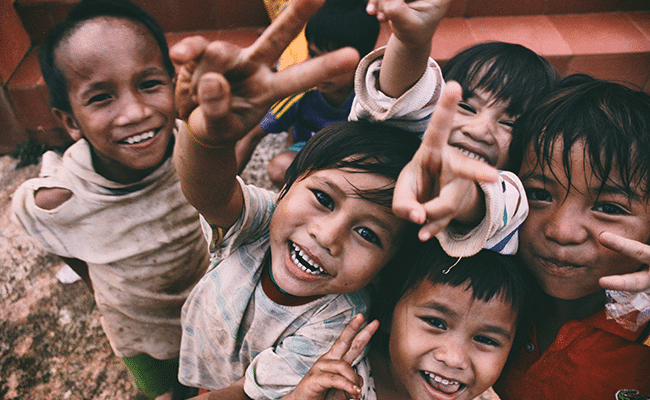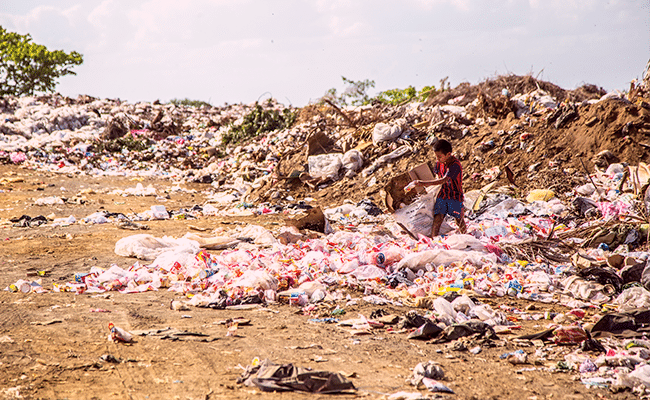Poverty is a problem that has affected humanity in all stages of history, in past times, the main causes of poverty were social inequalities and ignorance of economies.
At present, there are many more factors that influence the development of this problem, which reaches exponentially high levels every day. By virtue of this, we were forced to do an exclusive article on the consequences of poverty and why it is essential that you know the different causes.
What are the causes of poverty?

First, it is necessary to highlight the differences between the terms "factor" and "causes", we know by factor that term that directly conditions the cause, instead the cause itself refers to what produced the outcome of a certain situation or problem.
In the same vein, it should be very clear that each region has different needs, therefore, it has very different causes of poverty in society; However, there are several nations with causes similar to other nations that lead to the poverty of their citizens, so the following causes are the most common on the globe:
Multinational business model
The importation of useless and useless products from other nations makes the budget of the country that imports them smaller and smaller, thus providing a very deplorable quality of life for citizens.
Thus, the labor force born in the region is denied the possibility of expanding their knowledge and providing experiences in various production sectors.
This can influence the nation to reduce its international budget and direct that money to investing in local talent.
Corruption
The most frequent factor within Latino populations, corruption not only makes the poverty of nations grow, but these factors also become common: the availability of employment for citizens, freedom of expression, food shortages, very poor sanitary service by public institutions, educational institutions increasingly demand much less from their students, crime takes over the streets, populations are impoverished; and thus an endless number of problems.
At an economic level, the resources that must be allocated are going to be used illicitly or for private use to meet the needs of the current rulers.

Climate changes
In very hot lands or in very cold lands, there are problems for food production, especially in countries that depend on this system to feed their inhabitants.
Environmental pollution, in part, is the reason for the different climatic changes that a nation can experience.
Climate changes can interfere with various types of poverty, not only food poverty but also causing people's health conditions to be affected.
Management
Epidemics and the inability of some countries to eradicate them makes diseases increasingly the reason for poverty, generally extreme.
The public health service of the poorest nations is sometimes not capable of receiving large numbers of people and it is not always certain that surgical supplies or medicines are available.
Diseases are also a consequence of the low economic level of societies, therefore they become an even greater cause to increase the level of poverty in countries.
Resource inequalities
There are some class societies that do not distribute the money obtained under the exploitation of a certain sector of the population equitably. In Latin America, you can mainly see how there is a great contrast in the distribution of populations and how social discrimination is a common factor.
Mexico, for its part, is an example of this type of inequality, where classism is implemented even in the country's own laws, resulting in the increase in poverty level in certain sectors and enriching a small sector of the population; thus generating an imbalance in the economic stability of the country.
Armed conflicts
Some countries in war situations force their civilian citizens to move from one place to another, adapting to places that do not correspond to their needs and where survival becomes more and more present.
Many people ask for political refuge in other nations where they have to start from scratch, leaving behind everything they had built in their native countries and the opportunity to be employed within their professions, in short, the country in conflict loses a potential worker.
Population growth
The regions that are in situations of inequality are those that are most affected by the increase in population.
Factors like adolescent pregnancy directly affect the growth of poverty and forces nations to answer for extra food production.
In the same vein, population growth increases the levels of social inequality within nations, thus, the employment opportunity, the availability of food and the availability of quality public health are decreasing, this phenomenon occurs mostly in underdeveloped countries.
Main consequences of poverty

This problem brings with it several very serious consequences that can be observed in the long or short term within a certain nation.
The development conditions of a country are increasingly unattainable when the consequences of poverty are not addressed in time and with the necessary competence, problems like this can be seen in the following consequences:
Delinquency
Crime can arise thanks to the union of various types of poverty such as food, child, rural, urban, emotional, mental and extreme. It is a social evil that affects all social components of a country.
In other instances, the shortage of food forces a certain sector of the population that does not have a balanced scale of values, to be criminals. This type of citizen chooses to achieve in the easiest way everything that through the available means of the poor country they cannot. This phenomenon includes prostitution and murders among the same inhabitants of the region.
Food shortage
Whether due to a very low-income economy, a corrupt and useless system, or the lack of fertile land within the country, food shortages are a consequence of poverty.
The families most affected by this problem are those that do not have access to basic food needs, as is the case with personal hygiene products.
Child poverty is also a consequence of poverty, this means that in some families adults sacrifice their three daily meals to one or zero to give them to the little ones, and yet malnutrition is still present in some child sectors of the population.
Deplorable health conditions
Living in poverty affects people's health states, either emotionally or psychologically.
The lack of healthy eating causes people to decline in their health levels, also, the lack of medicines and access to private health services to acquire care that a public service does not offer makes the poverty level of the population is even higher, making the health conditions of the inhabitants who are immersed in this problem very serious and sometimes fatal.
Growth of negative values
Not having access to quality education, not living in a harmonious, clean and healthy environment and not having positive principles for the prosperity of society, are factors that make the poverty immersed within each one of them make negative values grow .
The lack of self-esteem, responsibility and ethical and moral values make the individual himself not able to claim for his situation and does not have the adequate tools to get out of it.
In turn, he will not have the power to demand that his rights be respected since he has no notion of what he deserves as a citizen.
Social inequality
Some underdeveloped countries have serious problems of resentment and resentment on the part of the most renegade sectors of the population towards people with a slightly more favorable economic position.
Everything has to do with the values themselves where the person grows and the principles that society It imposes on him so that he can develop himself.
In class-based countries that designate a sector of the population as neither corresponding nor deserving of good services by the state towards them, there is a greater probability that poverty will grow.
What are the main types of poverty?

Poverty affects all kinds of conditions of the population, so not only can the term be coined to the economy, there are also various poor fields within a society:
Food
The famine that countries are experiencing is not always due to the high inflation that each region has, but also to the availability of the state budget to supply the food shelves.
There are some exceptions as they are countries with a high rate of corruption, who have access to food production but use it to enrich the least needy.
On the other hand, there are some nations that do not have fertile lands for agricultural work or simply do not have access to livestock and fishing production.
Not to mention the foods that must necessarily be imported such as some nutritional supplements that need a sector with a special health status of the population.
Kids
This type of poverty is influenced by lack of food, child underdevelopment has serious and even fatal consequences.
Some parents do not have sufficient resources to cover the expenses of their children, it is necessary to emphasize that an average child needs to receive twice as much protein, vitamins and minerals as an adult.
Hence, poverty affects the child population much more than to the adult population; The adult for his part, if he does not have any disability, can take care of himself to solve the nutritional needs posed by the environment, however, a child depends on his parents or guardians to be able to eat.
Education, health and housing are closely related to child poverty, not only the nutritional factor but also within the rights of citizens: we find that we must all grow up in optimal health, education, food and recreation, and if they are not met they are violating our freedoms. This is one of the consequences of poverty and one of the most serious for society.

Rural
We find the various sectors of a population that resides in a rural area, since it has a higher rate of underdevelopment than urban areas, therefore, unemployment rates are higher than in other localities.
urban
It includes the various countries that have a high population rate within urban regions but are not in a position to offer a better quality of life to their inhabitants.
Also, people who emigrate from the countryside to large cities who do not have educational support or aptitude for a job position, are affected when residing in the city; This makes this sector of the population create a state of dependence on the other components of the same and is established within a single urban area.
female
This concept generates many controversies and confrontations worldwide, many countries have chosen to take a collective debate on the capacities of women to cover the same expenses of men.
There are two realities that condition female povertyThe first establishes that women are as capable as men of holding heavy or office positions and enjoying the same privileges, as a human being, all of this is possible without the sometimes macho perception that some countries do.
The second reality is the crudest and most common, women in today's society do not receive the same treatment at the work level as men, even if many have many years of experience and are professionals full of ethics, they still have certain disadvantages in front of men.
By virtue of this, women have been denied the same opportunities as men, and the responsibilities of the home fall on the shoulders of men. This phenomenon is seen a lot in Latin cultures and in Eastern countries where the necessary humanistic advances have not yet been achieved.
Although some countries have already achieved this gender equality, and they are the most developed countries in the world, they are still very few compared to the rest of the globe.
So it is a reality that must be examined under a non-subjective or critical judgment but based on the needs of populations and the problems that affect the working life of women that prevent them from achieving the same merits as men.
If countries like Australia, Iceland, Canada, Norway, Sweden, Finland, New Zealand or the Netherlands are taken as a reference to eradicate female poverty that encompass many types of poverty, from the other countries of the world. On the other hand, the presence of this problem directly affects the values with which families are built, respect for the female gender and its capacities within society should be the most important value implemented in educational institutions, in home and in different cultural customs.

Extreme
Indigenous peoples and the most discriminated sectors of a population are those that are most affected by extreme poverty. This type of poverty comprises 11% of the world's population and encompasses all types of poverty that can exist in a society.
Mental
Very harmful indeed toxic and sometimes fatal, it is mental poverty. This term generates many controversies in the world and its cultures, especially in this boom of Mindfulness and personal and spiritual growth, the term is implemented to refer to the various limitations that make us unable to overcome or achieve certain things in our life, however, a conclusion cannot be reached with 100% certainty since there are several factors that cannot be analyzed within the conditions of mental poverty.
It takes a very diplomatic and fair point of view to measure the amount of mental poverty a person has, and can this type of poverty be measured? Unfortunately, it does not have the same tangible and demonstrable qualities as extreme or child poverty.
Despite this, if there are various psychological factors that show when a person has a deep-seated mental poverty within himself.
Within this category, the idea of mental poverty is conceived as a term that conditions other types of poverty, thus, it is a limitation that structures people's lives according to their spiritual and mental needs.
To be more specific, we can find arguments that support the reason for mental poverty, a clear example of them is the fact of always seeking the approval of third parties without any benefit in common.
Emotional
In psychological terms, emotional poverty shows us what are the different value scales that a specific population with this condition has, and what their behaviors are with respect to third parties.
Anti-values are almost always attributed to beings that are called emotionally poor, those who do not feel empathy for the other, those who are not able to relate in a healthy way with others or in synthesis, those who have very negative energies.
On the other hand, a person who has a physical or mental disability can be considered emotionally poor, for example, a person in a coma, with a severe brain injury that does not allow them to distinguish between social and emotional qualities and even people with traits of psychopathy and sociopathy.
It refers, for its part, to the inability of being to expose its needs and emotions to others that limits its relationship with third parties; in some exceptional cases this happens, it is not always dealt with with negative attitudes and intentions
I liked the article very good
Bad governments, corruption and selfishness, I'm fine and not putting myself in the place of others